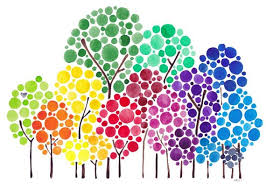The title of this article by Emily Matchar in the New Republic says it all: Meet the New Anti-Adoption Movement: The Surprising Next Frontier in Reproductive Justice. (Although I would argue that for those of us who follow the “politics” of adoption, the anti-adoption movement is not “new,” but one that has been present and growing for at least the past several years.) The article covers ground familiar to me, and I’m guessing many others:
Some women, like [Claudia] Corrigan D’Arcy, blog their stories. They run message boards with names like “First Mother Forum” and “Pound Pup Legacy,” full of tales of bitterly regretted adoptions. They hold retreats for birthmothers and adoptees. They’ve formed several grassroots activist organizations, including Parents for Ethical Adoption Reform, Origins-USA, and Concerned United Birthparents. Some call themselves adoption reformers. Others prefer terms such as “adoption truth advocate.” A few will come straight out and say they’re anti-adoption.
***
Very few activists are claiming that adoption shouldn’t be an option, but the activists currently involved in the issue recognize that adoption is far from the perfect solution it was so long perceived to be. It’s a difficult, life-changing decision with ramifications that last a lifetime. As such, it needs to be treated with the utmost transparency and a much higher degree of ethical oversight, legal and otherwise.
“I would rather see us live in a society where we say to struggling pregnant women, ‘OK you have a problem, we should try to fix the whole situation,’” says Corrigan D’Arcy, “rather than remove the child and leave the mother in crisis.” One of the most important events of her recent life was locating her now-teenage son via MySpace. “Every portion of finding him, whether it was just finding that he was alive or finding where he is, I felt one step lighter, one step closer to being who I was really supposed to be.”
***
Reading the article, I felt a sense of near-vindication, that I haven’t been imagining it, that the prevailing opinion toward adoption is, in fact, primarily and increasingly negative. What does that mean for families like ours, that are so obviously formed through adoption, and especially for my children?
I can talk forever about how we know our kids’ birth families and have relationships with them; how adoption was the best choice for each of our children’s birth mothers (according to our children’s birth mothers themselves) and for thousands of other women; how we visit Guatemala every year and embrace the culture. But none of that counts, really, when you’re discussing the “philosophy” of adoption, and whether it should be permitted at all.
Regardless of the details of any specific case, and whether or not the “general public” is aware of it, a shift in attitude toward adoption has occurred and is occurring, led by many vocal and active critics of the “institution.” I commend Emily Matchar and the New Republic for writing and publishing an article that illuminates this important subject with candor.
Image credit: Google images




 ShareThis
ShareThis